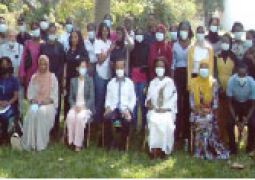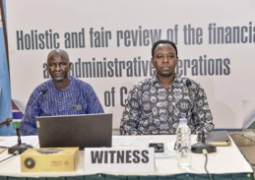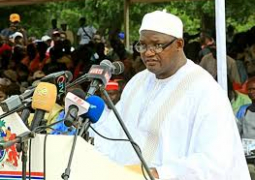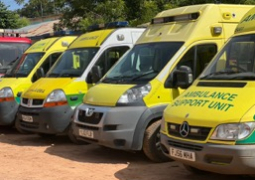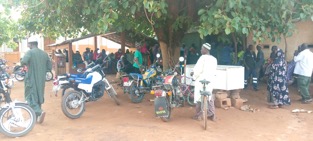
Mr. Jatta who made the remarks at Garawol in Upper River Region added that the enrolment is going smoothly with community members cooperating with Multi Disciplinary Facilitation Teams (MDFTs).
He also said that they are working according to the timeline to ensure the exercise is done effectively and efficiently.
He noted that they look forward for the scaling up of the Nafa Program to become national, saying Social Safety Net will make life easy for the common person. He also said that the direct Cash Transfer is the only way to alleviate poverty in the country.
The Nafa Program component of The Gambia Social Safety Net Project (a US$ 31 million project) is jointly funded by the World Bank and the Government of The Gambia.
The National Nutrition Agency (NaNA), Directorate of Social Welfare and Department of Community Development are implementing the Nafa Program as part of The Gambia Social Safety Net Project (SSNP) which aims to strengthen the coordination of social assistance activities, inclusion of the extremely poor in the Nafa Program and build resilience of society's most vulnerable.
The Nafa Program is a combination of Cash Transfer. So too, is the Social and Behavioural Change Communication (SBCC) that is being implemented in phases.
The first phase involved three Districts (Foni Bintang in West Coast Region, Nianija in the Central River Region and Wulli West in the Upper River Region.) The project is now being rolled out to 17 other districts across the country.
The project is targeting 15,606 extreme poor households which equates to approximately 40 percent of the extremely poor households in The Gambia. The project targets the 20 poorest districts in The Gambia.
The Project Development Objective (PDO) is to improve the coordination of social assistance activities, provide temporary social assistance support to households in rural Gambia; COVID-19and enhance inclusion of the country`s marginalised households in the Nafa Program.
Alagie Jatta, Regional Community Development Officer for Department of Community Development said in enrolling beneficiaries they ask for the size of their households, who they want to present as their principal recipient, their procreator, number of children under 3 years and who are male and female.
He thanked the World Bank and The Gambia Government for providing the resources as well as the beneficiaries for their cooperation.
Saikou Drammeh, Nutrition Field Officer for the National Nutrition Agency (NaNA) said their challenges include beneficiaries bearing the same names and surnames; some families still coming forward trying to register themselves as extremely poor households, and beneficiaries eager to go to their farms due to the rainy season.
Fatoumatta Conteh, a principal recipient at Garawol said her husband is old and his wives are the ones taking care of the family, noting that as such, the Nafa Program will help them with the feeding of their family as well as the payment of the education of their children.
Muhamadou Tunkara, a beneficiary at Garawol in URR said he is currently taking care of his late brothers’ wives and children and only depend on farming. According to him, sometimes the season harvest can be below expected but the Nafa Program will be able to improve their living conditions.


